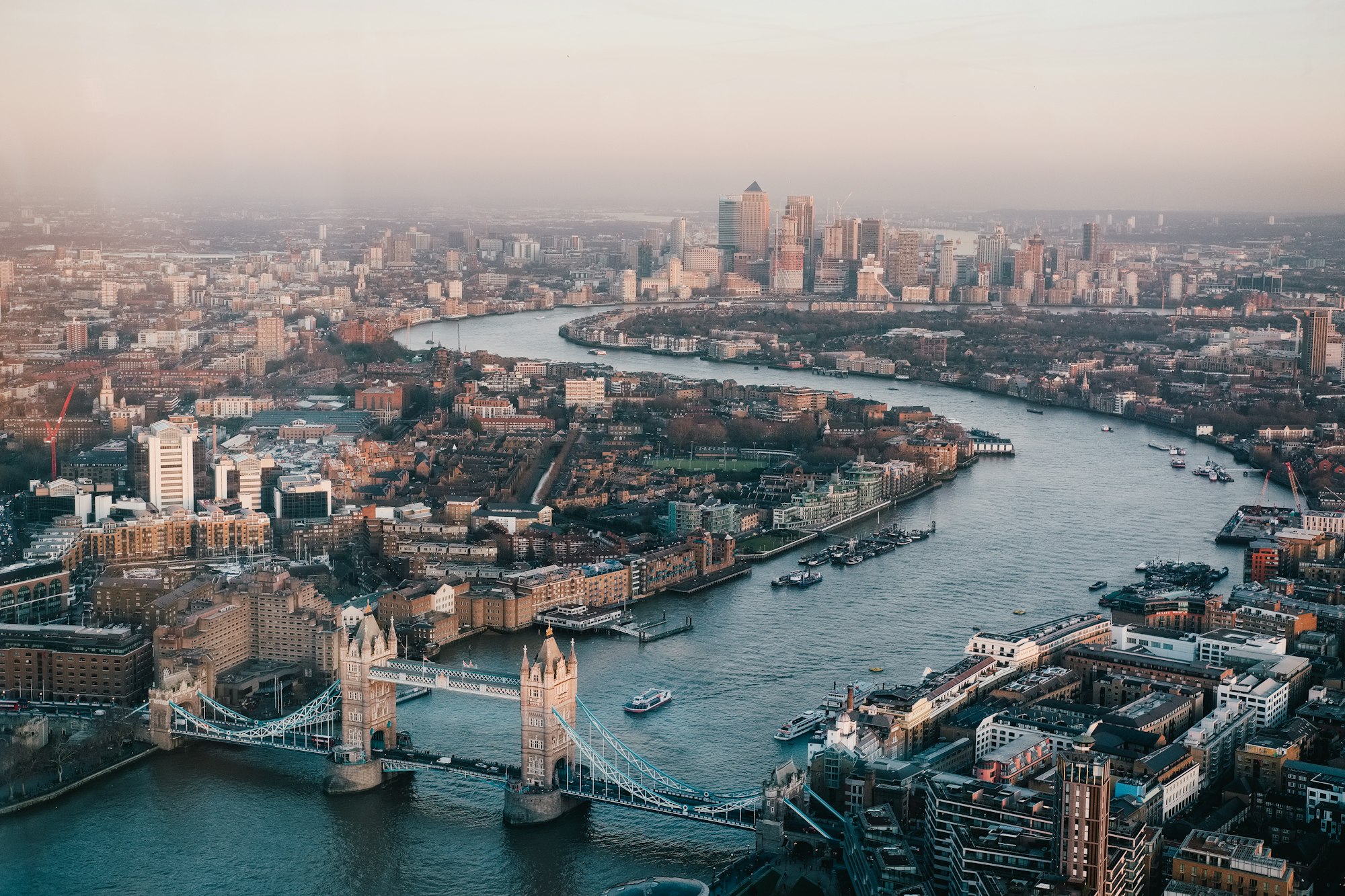Explore the fascinating history of The Who, one of the most influential rock bands of all time. Learn about their unique sound, classic albums, influence on the genre and groundbreaking live shows.
The Who is one of the most influential and enduring rock bands of all time. Formed in London in 1964, the band has been entertaining audiences for over five decades.
Looking into The Who and what moulded them into the group they are today, it is a fascinating tale of four school friends who pursued a dream.
Here, we bring you the history of The Who, including how they developed their signature sound, their most iconic albums, and the development of their electrifying live shows.
The Early Years of The Who

The Who was formed in London in 1964 by singer Roger Daltrey, guitarist Pete Townshend, bassist John Entwistle, and drummer Keith Moon.
All four of The Who's band members were born in London, with Daltrey, Townshend and Entwistle growing up in Acton and attended Acton County Grammar School (Roger Daltrey was in the year above).
Townshend and Entwistle were friends and together formed a traditional jazz group called ‘The Confederates’. The group didn’t last long, however, their itch for music remained.
Daltrey formed a group called the Detours in 1959, which would eventually evolve into The Who. Entwistle was the first to be recruited by Daltrey, and in 1961, he recommended his old friend Townshend as the guitarist.

Keith Moon didn’t join the band until 1964, well after the band had changed from The Detours to The Who and when the band had already established themselves somewhat. He joined after former drummer Doug Sandom left the band.
The band were enticed to bring Moon in after he played one gig with them, where he broke a bass drum pedal and tore a drum skin, aligning with the rest of the group's energetic and enthusiasm when playing.
The band was initially part of the British mod movement, which was a youth subculture that emerged in London in the late 1950s and 60s.
The mod movement was known for its love of fashion, music, and dancing, and The Who's early music reflected this cultural movement, eventually seeing them become heavy influencers of the culture.
It was a change of managers that brought about the mod idea. Peter Meaden, sometimes referred to as the “Mod Father”, took the role and reinvented the band to attract a mod following, going as far as changing the name of the group to The High Numbers and writing their first and only single (under that name), “I’m the Face/ Zoot Suit”.
Meaden didn’t last long after the single failed to reach the top 50. He was replaced by two filmmakers, Kit Lambert and Chris Stamp, and the band returned to being The Who.
Throughout the 60s, The Who were building their name through their unique sound and onstage antics that led to one-of-a-kind performances.
American producer Shel Talmy, who had produced the Kinks, saw the band playing in practice once and was impressed, signing them to his production company. Their song “I Can’t Explain”, written by Townshend, was deliberately made to sound like the Kinks to attract Talmy’s attention.
The song became popular with pirate radio stations such as Radio Caroline, which was important for their growth as commercial radio stations in the UK weren’t playing their sort of music.
This was the start of The Who’s rise to becoming the beloved rock and mod icons that they are to this day.
Classic Albums
The Who has released several classic albums over the years. Their 1965 debut album, ‘My Generation’, is considered one of the greatest rock albums of all time. The album's title track, ‘My Generation’, is one of the band's most famous songs and remains a staple of classic rock radio to this day.
Another classic album from The Who is ‘Tommy’, which was released in 1969. ‘Tommy’ is a rock opera that tells the story of a deaf, dumb, and blind pinball champion, and is the record that ultimately made The Who millionaires.
The album was groundbreaking and was one of the first true concept albums in rock and roll. ‘Tommy’ remains one of the band's most famous and beloved albums and has been adapted into a film, a stage musical, and an opera.
A fun fact about ‘Tommy’ - the song ‘Pinball Wizard’ was written by Townshend so that New York Times journalist Nik Cohn, who was a notorious rock and roll critic from the genre's early years, would write a favourable review about the album as he was a pinball enthusiast.
Quite possibly their best album of all is 1971s ‘Who’s Next’. Following ‘Tommy’ was going to be tough, yet somehow they didn’t just follow it, they bettered it.
It was lauded immediately, with many critics calling it The Who’s best album and even one of the greatest albums of all time.
The Who's ‘Quadrophenia’, released in 1973, was their second rock opera album after ‘Tommy’; this time they told a story based in London and Brighton of a young mod named Jimmy and his search for self-worth and importance. It was entirely composed by Townshend.
The Who's Unique Sound & Influence
The Who's unique sound is characterised by their powerful guitar riffs, thundering basslines, and aggressive drumming.
They are credited with originating the rock opera, with albums ‘Tommy’ and ‘Quadrophenia’ being the early examples of the potential greatness within the music of this kind.
Other contributions they made to rock was the power cord, windmill strum, and the use of non-musical instrument noise such as feedback.
Bands and artists such as Jimi Hendrix, The Beatles, Pink Floyd, and Queen have in the past noted the influence The Who had on their own music, with Hendrix, in particular, visiting Marshall’s music shop in London to specifically demand an amp setup like Townshend’s and manipulated electronic noises in ways that Townshend had pioneered.
Pete Townshend's inventive guitar playing and innovative use of feedback and distortion helped to shape the sound of rock and roll. His impressive innovative mind is made even more remarkable when you realise he taught himself how to play the instrument.
The band's powerful live shows and dynamic stage presence also played a major role in establishing their reputation as one of the greatest live bands of all time.
Groundbreaking Live Shows
The Who's live shows have been legendary since the beginning of their career. The band was known for their energetic and theatrical performances, which often involved smashing their instruments at the end of their shows. This became a hallmark of The Who's live shows and helped to establish the band's reputation as one of the greatest live acts of all time.
Smashing their instruments wasn’t something they conceived one day, though; it actually came about as a happy accident.
In 1964, during a performance at the Railway Hotel in Wealdstone, which at the time was a regular venue for them, Townshend accidentally broke the head of his guitar on the low ceiling of the stage.
After the crowd started laughing at him, an angry Townshend smashed the guitar on stage, then picked up another and continued to play the show.
The next week, the audience had grown somewhat as people were keen to see a repeat of the event. This time, however, it was Moon who kicked his drum kit over. As such, auto-destructive art became a feature of The Who’s shows.
The band's 1969 performance at the Woodstock Festival is one of the most famous of The Who's live shows in rock and roll history. The band's performance at Woodstock was a triumph, and their powerful and energetic performance cemented their reputation as one of the greatest live bands of all time.
Despite going on stage in the early hours of Sunday morning, the group delivered a powerful and dynamic performance that left the crowd in awe - despite the band members not enjoying the set themselves.
Even with all the smashing of instruments, frontman Roger Daltrey has always been the centrepiece of the group. His commanding presence on stage and powerful voice is what helped The Who become the great performers that they were.
Daltrey and Townshend may be the only two remaining members of the original group, but that hasn’t stopped them from bringing The Who’s inimitable sound to the masses.
The Who have continued touring over the years and will be conducting another European tour in 2023, titled ‘The Who Hits Back!’.
The tour will see them visit Spain, Italy, Germany, France, and the UK during the summer, with the majority of the tour taking place in their home nation at outdoor venues.
Here are the dates for the shows in the UK in 2023:
- 6th July - Sewell Group Craven Hill Park, Hull, England
- 8th July - Edinburgh Castle, Edinburgh, Scotland
- 9th July - Edinburgh Castle, Edinburgh, Scotland
- 12th July - The O2, London, England
- 14th July - The Incora County Ground, Derby, England
- 16th July - The Badminton Estate, Bristol, England
- 19th July - Seat Unique Riverside, Durham, England
- 21st July - Totally Wicked Stadium, St Helens, England
- 23rd July - The 1st Central County Ground, Brighton, England
You can see the band live in person and in the best possible fashion with premium The Who tickets and hospitality packages, providing you with an unforgettable experience.
With premium tickets and hospitality to their show at the Seat Unique Riverside stadium, you can enjoy the unique sounds of the rock icons in luxury, with a comfortable seat located in a prime location with unrivalled stage views, delectable food and drink options, and more benefits!
Be sure to enquire now so you can be contacted as and when tickets for the show become available.
Enquire now about The Who at Seat Unique Riverside VIP tickets
Comments